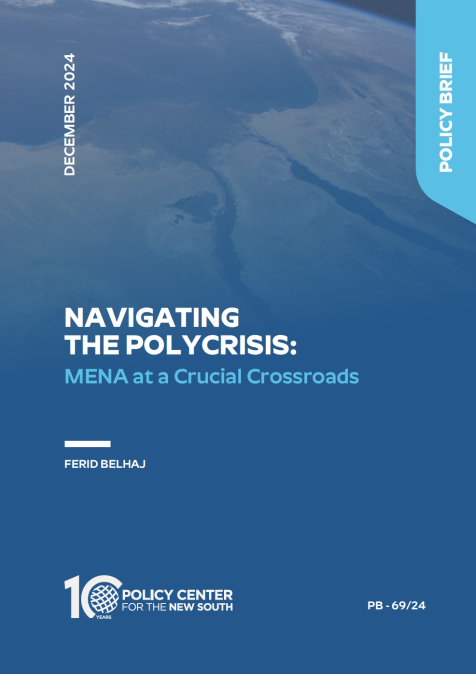Publications /
Opinion
On November 9th, 2017, over 1,000 students and professionals convened at Harvard University for the 11th annual Harvard Arab Conference to discuss key issues across the region. The four-day conference promoted a forward-looking approach to seek innovative solutions to the political, economic, and social gaps that persist across the Arab World. Conference attendees included government ministers, award-winning actors, former heads of state, students, and various other participants. The conference also showcased Arab innovation and resilience through panels and performances and provided participants with ample opportunities for networking.
During the second day of the conference, a session – featuring OCP – gathered leaders in academia, industry, and public policy together to discuss the future of sustainable energy, water, & climate change. These topics are often neglected in discussions of the Arab World despite their salient impact on daily life across the region. This session shed light on these issues along with a call for unified efforts to build effective climate change resilience at the nexus of water, energy, and food.
The Session: “Sustainable Energy, Water, and Climate Change”
Organized by Global Nexus and OCP Policy Center, this one-and-half-hour session convened at the Harvard Law School, in the format of a keynote from Professor Peter Rogers, presentations, and a panel discussion. The objective of this session was to engage responsible stakeholders on climate change in the MENA region through a constructive dialogue focusing on the water, energy, and food nexus (WEF Nexus).
Professor Rogers’ keynote contextualized climate change in relation to the WEF Nexus. With climate-induced stress on regional natural resources, we must do more with less. The WEF Nexus allows for policies and strategies to be elaborated with harmonized discipline across the water, energy, and food vectors. Professor Rogers framed his keynote around five global changes fueled first by urban population growth, and then by global nutrition, agriculture, energy and climate transitions. These changes are occurring at a rapid pace across the MENA region, creating stress on critical natural resources, namely water, energy and food. Consequently, policy leaders must develop interventions and technology innovations that account for the WEF Nexus on the above-mentioned global transitions.
The opening was followed by illustrations of OCP’s leadership in integrating the WEF Nexus and utilizing modeling in decision analysis across three dimensions – (1) policy & strategy, (2) operational excellence, and (3) modeling and analysis. The panel emphasized the importance of transforming the policy dialogue from resource conflict to resource cooperation among stakeholders; this transformation is critical among institutions and individuals traditionally contending for WEF resources. Through dialogue among WEF stakeholders, hotspots, trade-offs, and interlinkages can be better understood across the natural resources supply change.
The panel ended with an overview of OCP’s work on decision support modeling and analytics throughout the OCP Value chain– a Nexus framework for the Phosphates industry (WE/F-P). WE/F-P is the combination of two constructs: outward & inward application.
1. WE/F – The Nexus framework that relates the Water & Energy footprint outward to the environment. By conducting multiple scenario analyses of water and energy production, as well as transportation, OCP is able to quantify their impacts on sustainability indicators such as water use, CO2 emissions, energy production, and social impact.
2. WE/P – The Nexus framework that relates Water & Energy systems inwards to the phosphates value-chain. The approach is based on systems analytics to account for and contextualize water and energy usage or transformation across the OCP industrial chain. It is an instrument that may be used for feasibility studies to elaborate strategies and translate them onto operations or as a tool for operational teams to advance visibility and control over water & energy allocations.
The panelists also highlighted OCP’s work towards reaching energy sufficiency by 2020 along with OCP’s efforts to ensure that 35 Mm3 of non-conventional water capacity is successfully commissioned. OCP is also committed to doubling mining capacity and tripling industrial processing capacity while maintaining the same level of conventional source water consumption and achieving energy-sufficiency.
Panel Discussion / Audience Q&A
The panel featured a mobile application, downloadable from the event’s website, that allowed the audience to submit questions to the panel. In particular, several questions were raised regarding OCP’s industrial strategy and how it accounts for appropriately managing water and (renewable/co-generated) energy. The panel discussion led to the conclusion that OCP has implemented successful water and energy management practices that can be replicated in other industries and countries in the MENA Region.
The global footprint of audience members stretched from the United States to New Zealand with participants also from Europe, Africa, and the Middle East.







